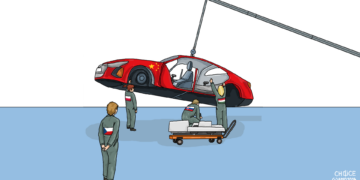The Missing Pieces? How CEE Can Contribute to a Stronger European Approach to China

Over a decade has passed since China made inroads into Central and Eastern Europe in 2012 by establishing the China-CEE cooperation format, providing a broad range of experiences in how the nations of the region engage with China. Even as the China-CEE framework has encountered setbacks and many countries have grown hesitant to cooperate with Beijing due to economic, value-based, or geopolitical reasons, others have expanded the cooperation.
This is especially true for Hungary and Serbia, who remain the pillar of the Chinese presence in CEE. Thus, the overall landscape of China-CEE relations remains complicated, making it difficult to make generalized assessments. However, certain trends are discernible, showing how the experience with China informs these countries’ views on issues on the EU agenda.
This paper, authored by CHOICE Research Fellows Ana Krstinovska, Alicja Bachulska and Una Aleksandra Bērziņa-Čerenkova, seeks to answer the question of how Central and Eastern European (CEE) countries can use their experience and unique perspectives on relations with China to contribute to a more unified, competent, and self-confident European policy towards Beijing.
To this end, the authors of the paper analyze the CEE perspectives on the issue of European strategic autonomy, Russia’s war against Ukraine and Sino-Russian ties, and the development of relations with Taiwan.



